Three identical metal plates of area S are at equal distances b as shown. Initially metal plate A is uncharged, while metal plates B and C have respective charges +Q0 and −Q0 initially as shown. Metal plates A and C are connected by switch K through a resistor of resistance R. the key K is closed at time t = 0

After the steady state is achieved, the charge on plate A is :
Q02
−Q02
Q03
−Q03
At steady state charges on both the capacitor will be equal.Hence charge on plante A is −Q0/2.
Topper's Solved these Questions
Similar Questions
A radioactive element decays by β−emission. A detector records n beta particles in 2s and in next 2s it records 0.75n beta particles. Find mean life correct to nearest whole number. Given ln |2|=0.6931, ln |3|=1.0986.
View SolutionWhen p−n junction diode is forward biased then
View SolutionThree identical metal plates of area S are at equal distances b as shown. Initially metal plate A is uncharged, while metal plates B and C have respective charges +Q_(0) and -Q_(0) initially as shown. Metal plates A and C are connected by switch K through a resistor of resistance R. the key K is closed at time t = 0 Then the magnitude of current in amperes through the resistor at any later time is :
View SolutionThree identical metal plates of area S are at equal distances b as shown. Initially metal plate A is uncharged, while metal plates B and C have respective charges +Q_(0) and -Q_(0) initially as shown. Metal plates A and C are connected by switch K through a resistor of resistance R. the key K is closed at time t = 0 The total heat produced dissipiated by resistor of resistance R is :
View SolutionThe metal plate on the left in Fig, carries a charge +q . The metal plate on the right has a charge of -2q . What charge will flow through S when it is closed if the central plate is initially neutral ?
View SolutionThree identical large metal plates each of area S are at distance dand2d from each other as shown. Metal plate A is uncharged, while metal plates BandC have charges +Qand−Q respectively. Metal plates A and C are connected by a conducting wire through a switch K. How much electrostatic energy is lost when the switch is closed ?
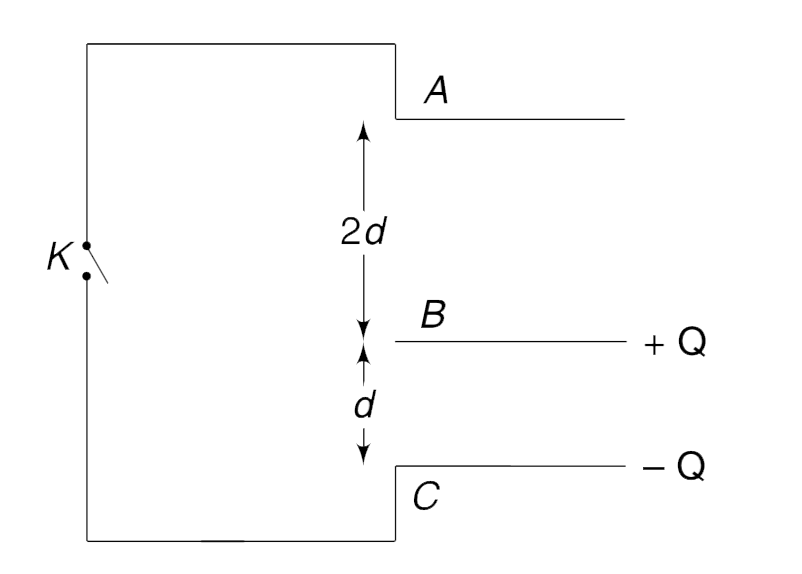
View SolutionThe left plate of the capacitor shown in the figure above carries a charge +Q while the right plate is uncharged at t=0. The total charge on the right plate after closing the switch will be:
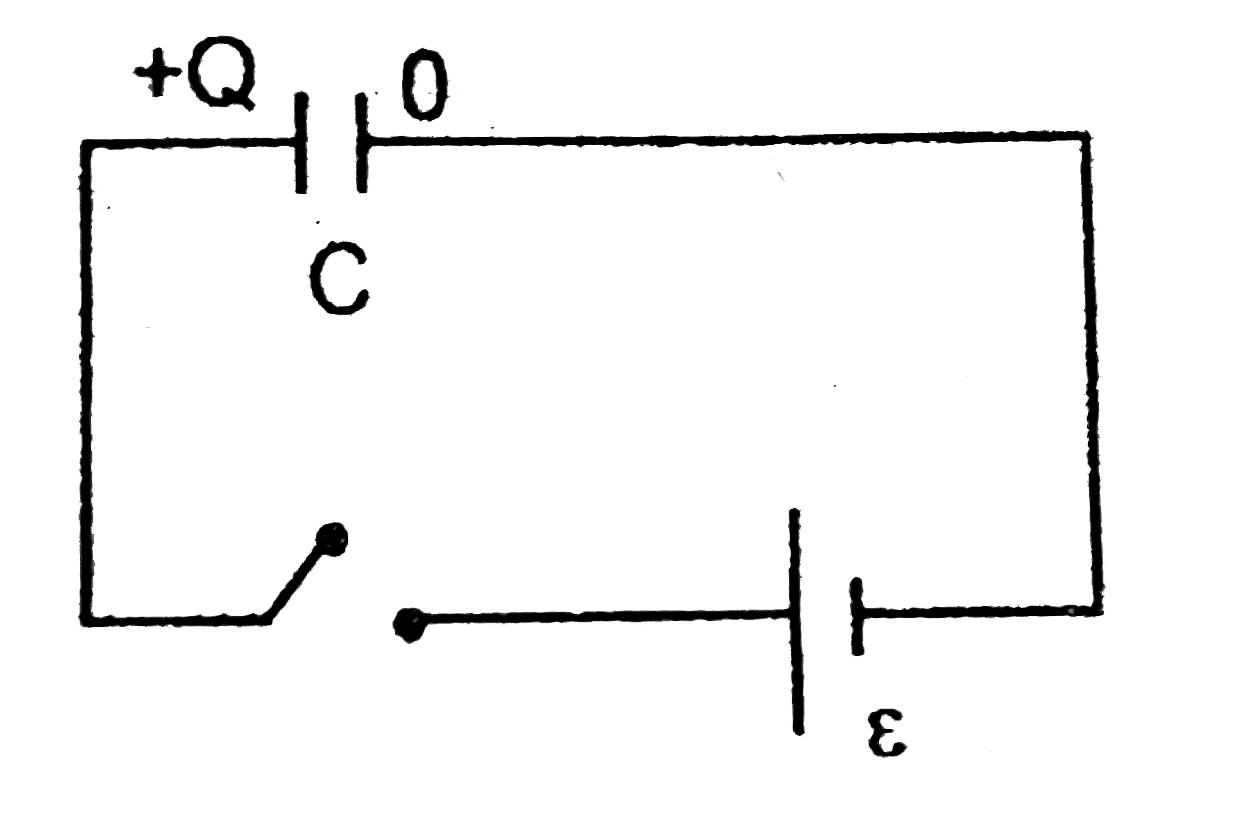
View SolutionThree identical metal plates each of area 'A' are arranged parallel to each other. 'd' is the distance between the plates as shown. A battery of 'V' volts is connected as shown. The charge stored in the system of plates is
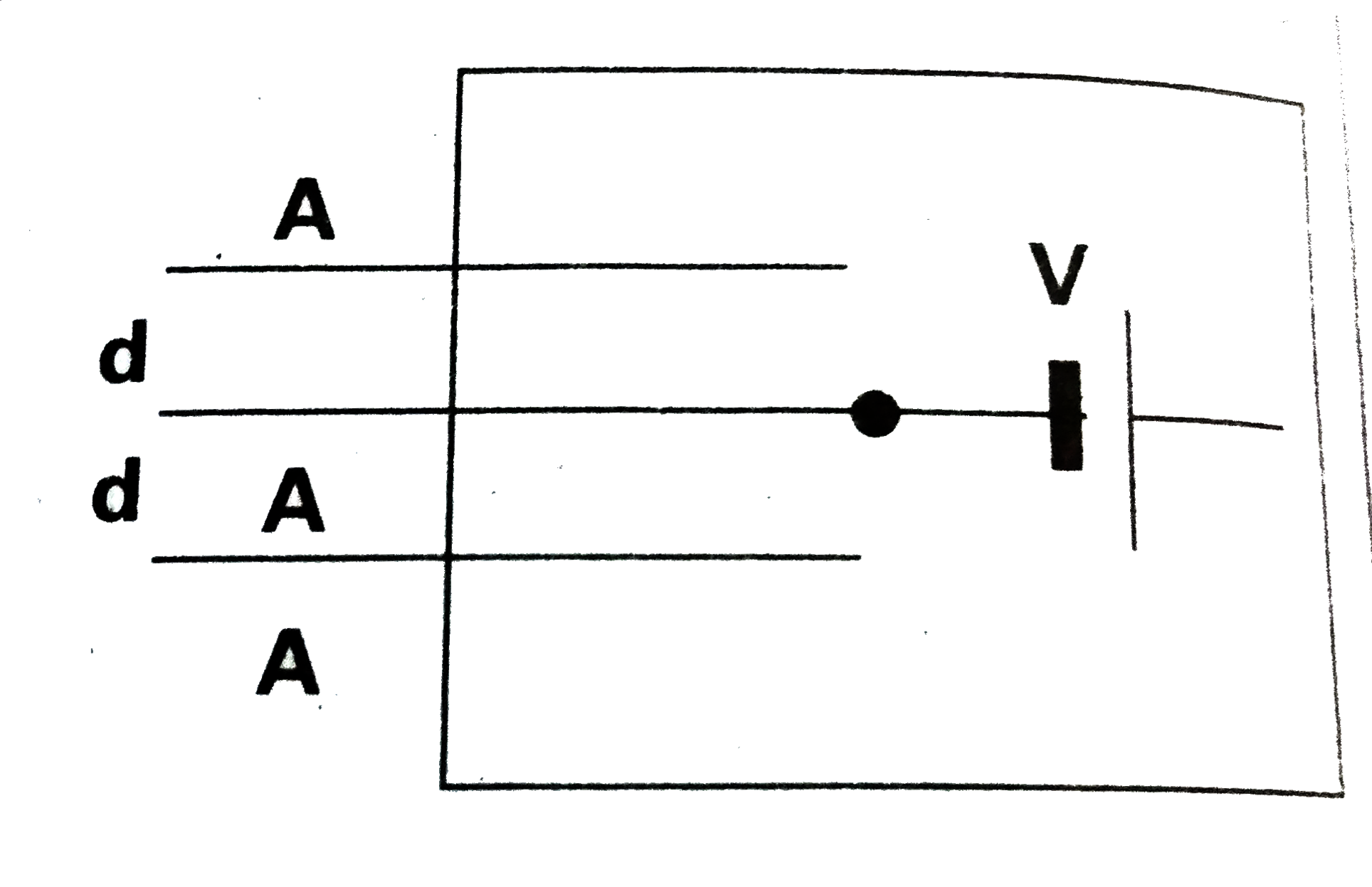
View SolutionThree identical metallic plates, each of area A, are kept at small separations as shown. Initially, charge Q, 3Q and 3Q are given to the plates A, B and c, respectively. Now, both the switches S_(1) and S_(2) are closed simultaneously. Then Charge flown through S_(1) and S_(2) are
View SolutionThree identical metal plates of area 'A' are at distance d1&d2 from each other. Metal plate A is uncharged, while plate B & C have respectively charge+q & - q . If metal plates A &C are connected by switch K through a consumer of unknown resistance. What energy dose the. Consumer give out to its surrounding ?
Assume d1=d2=d
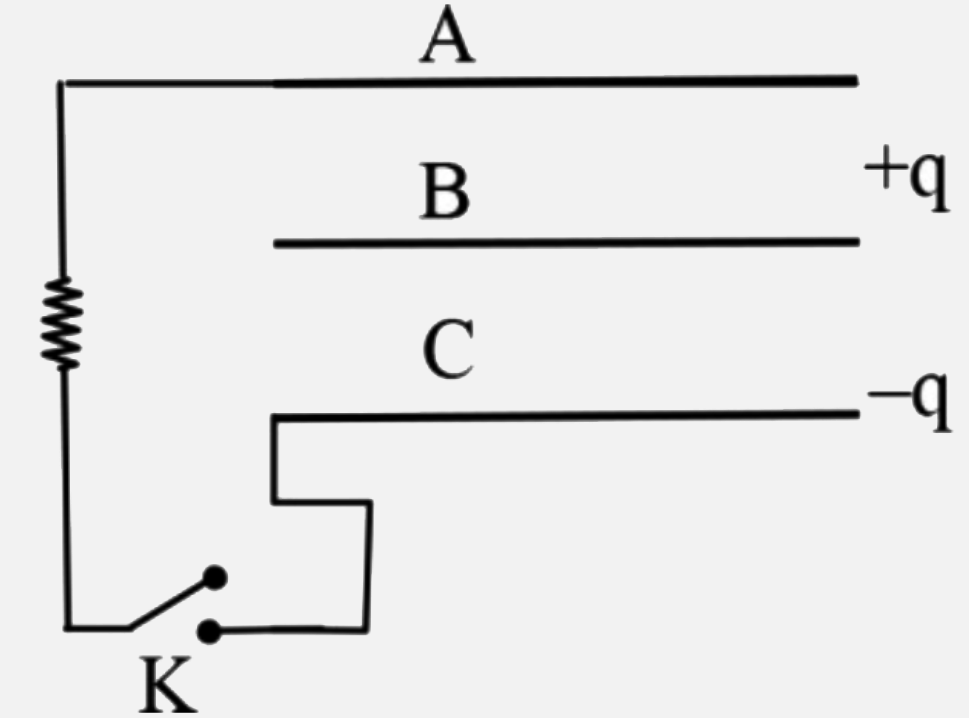
View Solutionदो एकसमान धातु प्लेटों पर क्रमशः धन आवेश Q1,Q2,Q3 तथा Q4 दिये गये हैं । अब यदि इन प्लेटों को पास लाकर C धारिता का समान्तर पट्टिका संधारित्र बनाया जाता है, तब प्लेटों के बीच विभवान्तर होगा
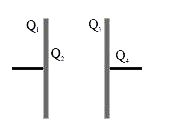
View SolutionFour initially uncharaged thin, large, plane idential metallic plates A,B,C and D are arranged parallel to each other as shown. Now plates A,B,C and D are given charges Q,2Q,3Q and 4Q respectively. Plates A and D are connected by a mtallic wire while plates B and C connected by other metallic wire then after Electrostatic equilibrium is reached.
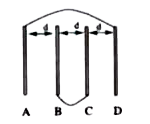
Total charge on plates after earthing plates A and B will be
View SolutionIn the given arrangements the charges given to the metallic plates A,B and D are Q_(0), Q_(0) and 2Q_(0) respectively, the metal plate C is neutral (separation distance between the plates is d. (d is very small when compared to plate area dimensions) When all the switches are closed. The amount of the charge passing through the switch SI is
View SolutionThe metal plate on the left in Fig, carries a charge +q. The metal plate on the right has a charge of −2q. What charge will flow through S when it is closed if the central plate is initially neutral ?
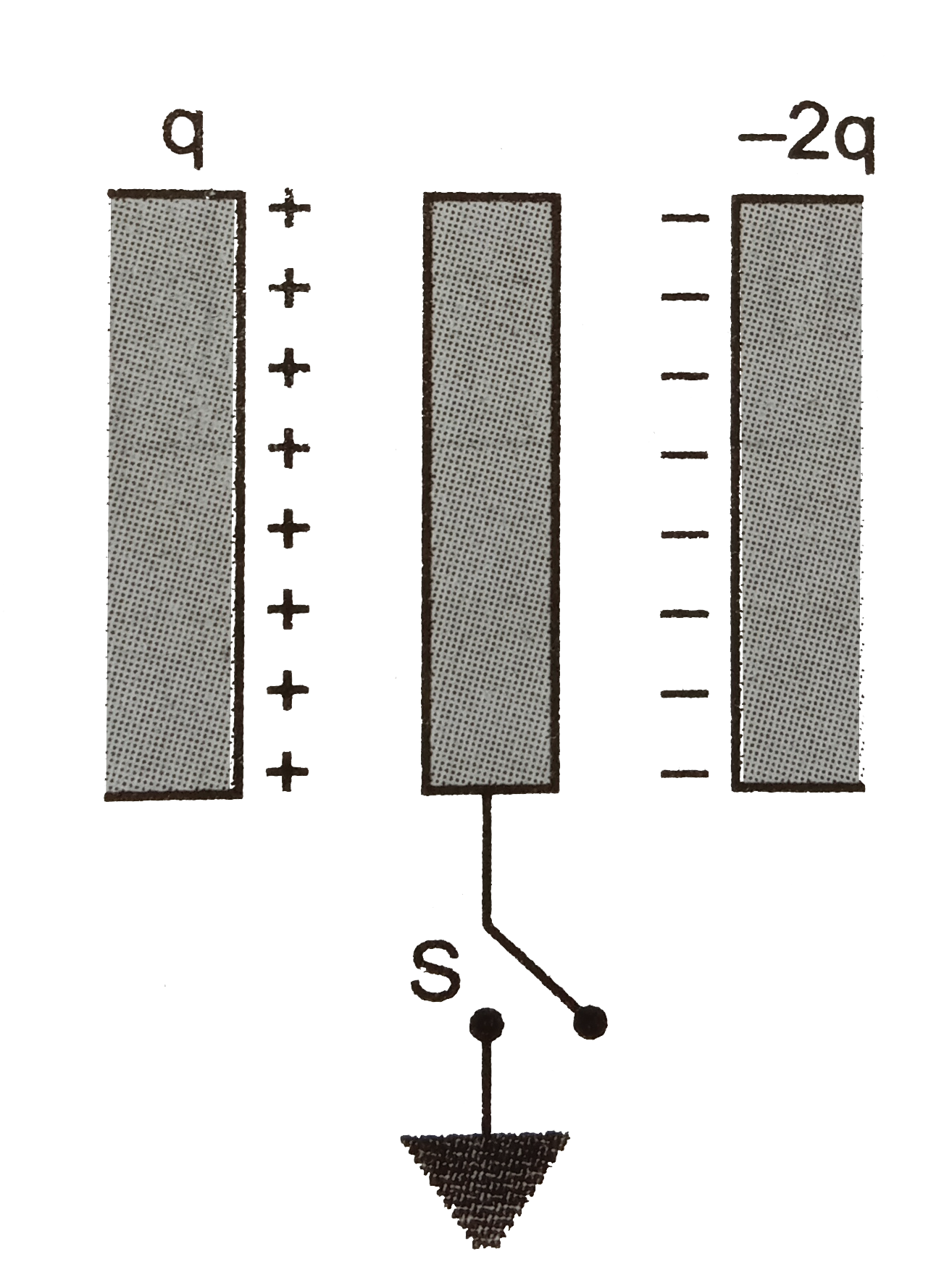
View SolutionThe left plate of the capacitor shown in the figure above carries a charge +Q while the right plate is uncharged at t=0. The total charge on the right plate after closing the switch will be:

View Solution
